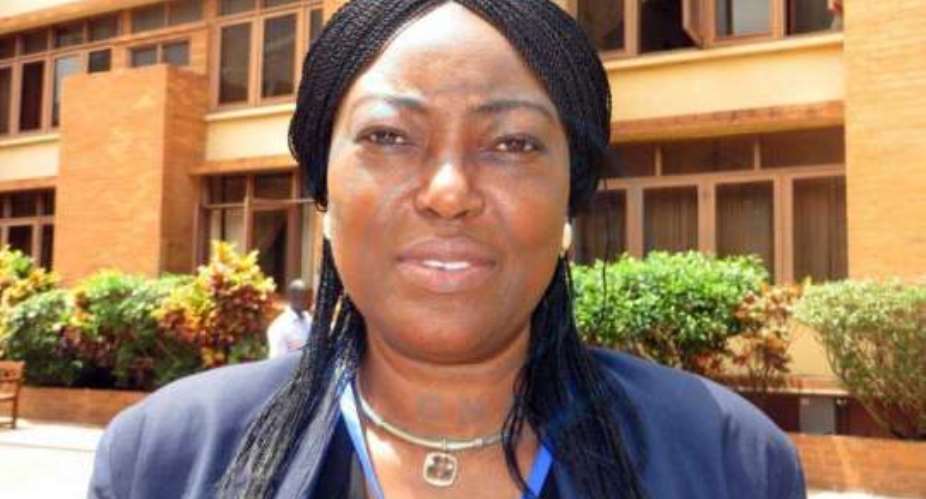Accra, Sept. 20, GNA - The International Centre for Migration Policy Development (ICMPD) on Wednesday lauded ECOWAS for the implementation of the Regional Monitoring Mechanisms for Free Movement of Inter-State Passenger Vehicles, Persons and Goods within the sub-region.
Madam Sodeinde Mojisola, ICMPD Coordinator for West Africa, commended the ECOWAS Directorate of Free Movement and Tourism, for the new direction it had charted for this project and the dynamism they inspire in the "Support to Free Movement of Persons and Migration in West Africa" (FMM West Africa) project.
"This initiative has very far reaching implications, particularly given that it is essentially targeted at majority of the ECOWAS Community population, who have legitimate needs, as provided for by the ECOWAS Free Movement Protocol, to move across the borders of the various member states," she stated.
Madam Mojisola gave the commendation in Accra at the inauguration of the National Steering Committee in Ghana of the Regional Monitoring Mechanisms for Free Movement of Inter-State Passenger Vehicles, Persons and Goods within ECOWAS.
The two-day meeting was organised within the framework of the ECOWAS-Swiss Agreement for the removal of harassment along ECOWAS highways and the joint ECOWAS EU funded 10th European Development Fund (EDF) -Project 'Support to Free Movement of Persons and Migration in West Africa'.
Madam Mojisola further commended the efforts of the Swiss Government in supporting the removal of obstacles to free movement of persons along the Lagos - Abidjan corridor, including Mali, Ivory Coast, Ghana, Togo, Benin, Burkina Faso, Niger and Nigeria.
She said ICMPD promoted innovative, comprehensive and sustainable migration policies, to harmonize and make migration management more efficient, and to function as a service exchange mechanism for governments and organizations.
"ICMPD does this by using a holistic three-pillar approach: Research, Capacity building and Migration dialogues.
"This mechanism for facilitation of intra-regional public transport is one of the very practical evidence of the free movement regime in the ECOWAS sub-region, which has direct impact on ordinary citizens of ECOWAS member states," she added.
Madam Mojisola noted that with this launching of the national steering committee in Accra, the regional monitoring mechanism becomes operational in Ghana.
"The model instituted by Ivory Coast, from which this mechanism draws inspiration, has proven to be a great success," she said.
"Expanding this initiative to cover other corridors of mobility within the sub-region is a positive step towards achieving the aspiration of regional integration," she added.
Madam Mojisola said: "With the full participation of Ghana, we expect the mechanism to yield even greater benefits."
"If we get it right, it would mean that millions of citizens of ECOWAS member states would be able to exercise their rights of free movement without any discrimination, or incidence of unnecessary harassment," she declared.
She said the experience would give them insight into the kinds of safeguards that might need to be integrated into the processes prior to scaling it up to cover all 15 ECOWAS Member States.
She said ICMPD within the framework of the FMM West Africa Project funded by the European Union and ECOWAS was implementing the Regional Mechanism alongside the Swiss Development Cooperation.
"As we look to the future, we hope to be able to expand this initiative beyond the eight countries presently covered to benefit all ECOWAS Member States," she said.
Mr Albert Siaw-Boateng, the Director, Free Movement and Tourism at the ECOWAS Commission, said aside the eight countries currently implementing the pilot phase, there were plans to extend the project to other countries within the ECOWAS sub-region.
The Regional Mechanism aims to contribute in finding effective and sustainable solutions to obstacles to the free movement of persons and goods within the ECOWAS space.
It also seeks to improve the safety of the people and the free flow of interstate buses in the sub-region; strengthen regional coordination on the free movement of persons and goods; and minimize time and reduce red tape for transporters and passengers.
The launch of the National Steering Committee in Ghana therefore, completes the circle of National Steering Committees in the eight pilot countries to support the operationalisation of the Regional Mechanism based in Abidjan.





 Akufo-Addo spotted ordering chiefs to stand for his handshake
Akufo-Addo spotted ordering chiefs to stand for his handshake
 Akufo-Addo ‘disrespects’ every chief in Ghana except Okyenhene — NDC Communicato...
Akufo-Addo ‘disrespects’ every chief in Ghana except Okyenhene — NDC Communicato...
 Supreme Court clears way for dual citizens to hold key public positions
Supreme Court clears way for dual citizens to hold key public positions
 Be transparent, don’t suppress the truth – Prof. Opoku-Agyemang to Jean Mensa
Be transparent, don’t suppress the truth – Prof. Opoku-Agyemang to Jean Mensa
 ‘I won’t tell the world I was only a driver’s mate during challenges’ – Prof Jan...
‘I won’t tell the world I was only a driver’s mate during challenges’ – Prof Jan...
 We’ll prosecute corrupt officials of Akufo-Addo’s govt – Prof Jane Naana
We’ll prosecute corrupt officials of Akufo-Addo’s govt – Prof Jane Naana
 [Full text] Acceptance speech by Prof Jane Naana Opoku-Agyemang as 2024 NDC Runn...
[Full text] Acceptance speech by Prof Jane Naana Opoku-Agyemang as 2024 NDC Runn...
 Election 2024: Don’t be complacent, we haven’t won yet – Asiedu Nketia cautions ...
Election 2024: Don’t be complacent, we haven’t won yet – Asiedu Nketia cautions ...
 Election 2024: Stop fighting over positions in Mahama’s next govt – Asiedu Nketi...
Election 2024: Stop fighting over positions in Mahama’s next govt – Asiedu Nketi...
 Prof Jane Naana Opoku-Agyemang will restore dignity of vice presidency – Fifi Kw...
Prof Jane Naana Opoku-Agyemang will restore dignity of vice presidency – Fifi Kw...
